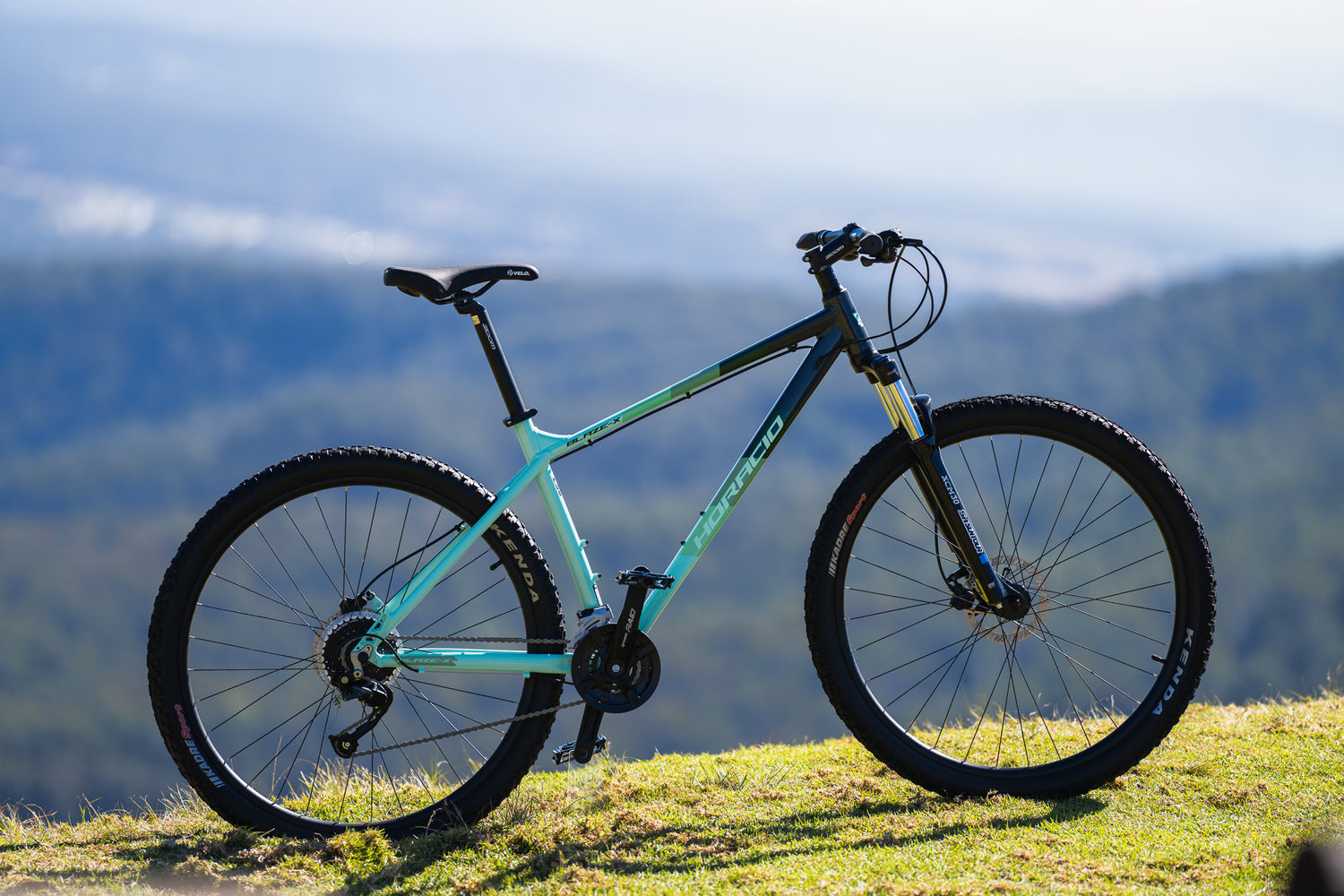If you're a beginner looking to get into mountain biking, choosing the right bicycle can make all the difference in your experience. With so many options available, it can be overwhelming to know where to start. In this blog, we'll take a look at some of the key factors to consider when selecting your first mountain bike.
-
Wheel Size: Mountain bikes come in a range of wheel sizes, including 26-inch, 27.5-inch, and 29-inch. The most common size is 27.5-inch, which offers a good balance between stability and maneuverability. If you're taller or prefer a more stable ride, a 29-inch bike might be a better choice.
-
Frame Material: The most common materials used in mountain bike frames are aluminum, carbon fiber, and titanium. Each material offers its own unique benefits, so it's important to consider your needs and budget when choosing a frame. For example, carbon fiber is lightweight and provides a smooth ride, while titanium is known for its durability.
-
Suspension: Mountain bikes typically come with either front suspension (a suspension fork) or full suspension (both front and rear suspension). Full suspension is ideal for more challenging terrain, but it also adds weight and complexity to the bike. If you're planning on riding on smoother trails, a front suspension bike may be a better option.
-
Drivetrain: The drivetrain is the system that allows you to change gears on your bike. There are two main types of drivetrains: derailleur systems and single-speed systems. Derailleur systems are more versatile, allowing you to shift gears on the fly, while single-speed systems are simpler and lighter.
-
Budget: Mountain bikes can range in price from a few hundred to several thousand dollars, so it's important to have a budget in mind before making a purchase. Keep in mind that you get what you pay for, so investing in a higher quality bike is likely to result in a better overall experience.
-
Test Ride: Before making a purchase, it's a good idea to test ride several bikes to see what feels best. Pay attention to the weight, stability, and comfort of each bike, and don't be afraid to ask questions and get advice from the sales staff.
In conclusion, choosing your first mountain bike can be a daunting task, but by considering these key factors and taking the time to test ride a few bikes, you'll be able to select the perfect bicycle for your needs. Remember, the most important thing is to find a bike that you're comfortable and confident riding, so you can enjoy all that mountain biking has to offer.



